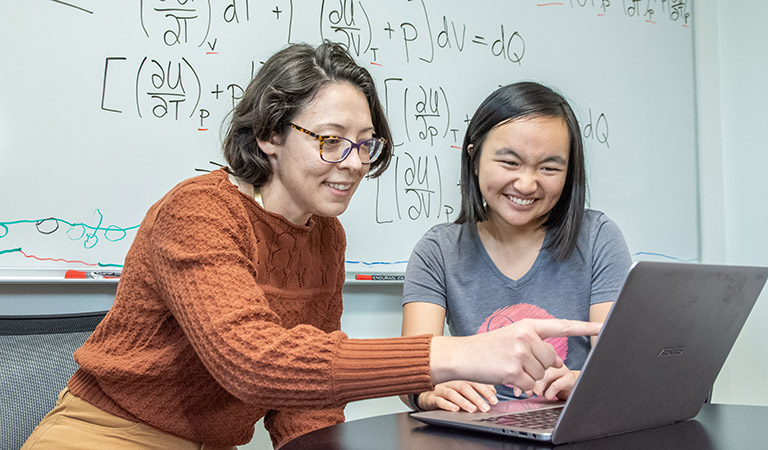Innovation Accelerator Showcase

Institute for Data Science & Social Impact
The Opportunity
While data science has rapidly expanded as a field, existing investment has focused on scientific or corporate outcomes. However, interdisciplinary data-informed approaches to critical challenges such as climate change, public health, housing, and education remain underdeveloped. Harvey Mudd’s mission, “to educate engineers, scientists and mathematicians…so that they may assume leadership in their fields with a clear understanding of the impact of their work on society,” positions us as possible leaders in the work of bringing together socially impactful community organizations with the data science practices that could support their work.
The Big Idea
Establish the Institute for Data Science and Social Impact (DSSI) at Harvey Mudd College as a national hub for leveraging data science to address societal challenges. The institute will foster interdisciplinary collaboration, advance data science research, and create pathways to apply data-informed methods to real-world issues. Through conferences, datathons, workshops and partnerships with community-based organizations (CBOs), the institute will connect data scientists, students and practitioners to co-develop impactful solutions in areas such as climate, education and health.
The Plan
The institute will focus on five key pillars:
1. Providing a site for the development of the nascent academic field at the intersection of data science and social impact. The Institute will enable collaboration between academics and domain experts to co-create frameworks for data-informed solutions to societal challenges.
2. Advancing research in mathematics, data science and related fields, and fostering innovation in their applications to societal challenges. Focus areas include natural language processing, predictive modeling, statistical methods, operations research and artificial intelligence (AI).
3. Creating research-to-action pathways. The Institute will establish networks with social scientists, activists and CBOs to apply data science methods to areas like climate impact, public health, and education.
4. Developing mathematical, statistical, computational and data literacy among practitioners working in the social justice space. Programs will build technical capacity for CBOs and other partners by enhancing their data literacy and processing resources.
5. Education, dissemination and outreach. The Institute will train future data scientists, provide research-involvement opportunities, and develop curricular resources, tools and datasets for national circulation.
The Impact
The DSSI will establish a national hub for integrating data science with social impact. The institute will empower students and faculty to collaborate with community-based organizations (CBOs), using data-informed methods to address issues like climate change and public health. The DSSI has the potential to redefine how data science is applied to societal challenges. By sharing research, curricular resources and best practices, the institute can inspire other institutions to adopt socially responsible approaches to STEM education. The program’s emphasis on ethical frameworks, interdisciplinary research and real world applications can accelerate the integration of social impact into STEM fields worldwide, promoting a new generation of data scientists trained to address the world’s most pressing challenges.
Share this Proposal
Proposers
- Heather Z. Brooks, Barbara Dewey Assistant Professor of Life Sciences and assistant professor of mathematics
- Lisette de Pillis, Norman F. Sprague, Jr. Professorship in the Life Sciences
- Zachary Dodds, Leonhard-Johnson-Rae Professor of Computer Science and Entrepreneurship Studio Director
- Gabriela Gamiz, director of civic & community engagement
- Jamie Haddock, Iris & Howard Critchell Assistant Professor of Mathematics
- Sarah Kavassalis, assistant professor of climate and chemistry
- Lynn Kirabo, assistant professor of climate and computer science
- Haydee Lindo, associate professor of mathematics
- Susan Martonosi, professor of mathematics
- Xanda Schofield, assistant professor of computer science
- Andrés R. Vindas Meléndez, assistant professor of mathematics
- Talithia Williams, professor of mathematics and director, mathematics clinic